Twins, Triplets and College Decisions
- Wednesday, 18 January 2017 20:43
- Last Updated: Sunday, 05 February 2017 20:59
- Published: Wednesday, 18 January 2017 20:43
- Josie Blatt
- Hits: 12946
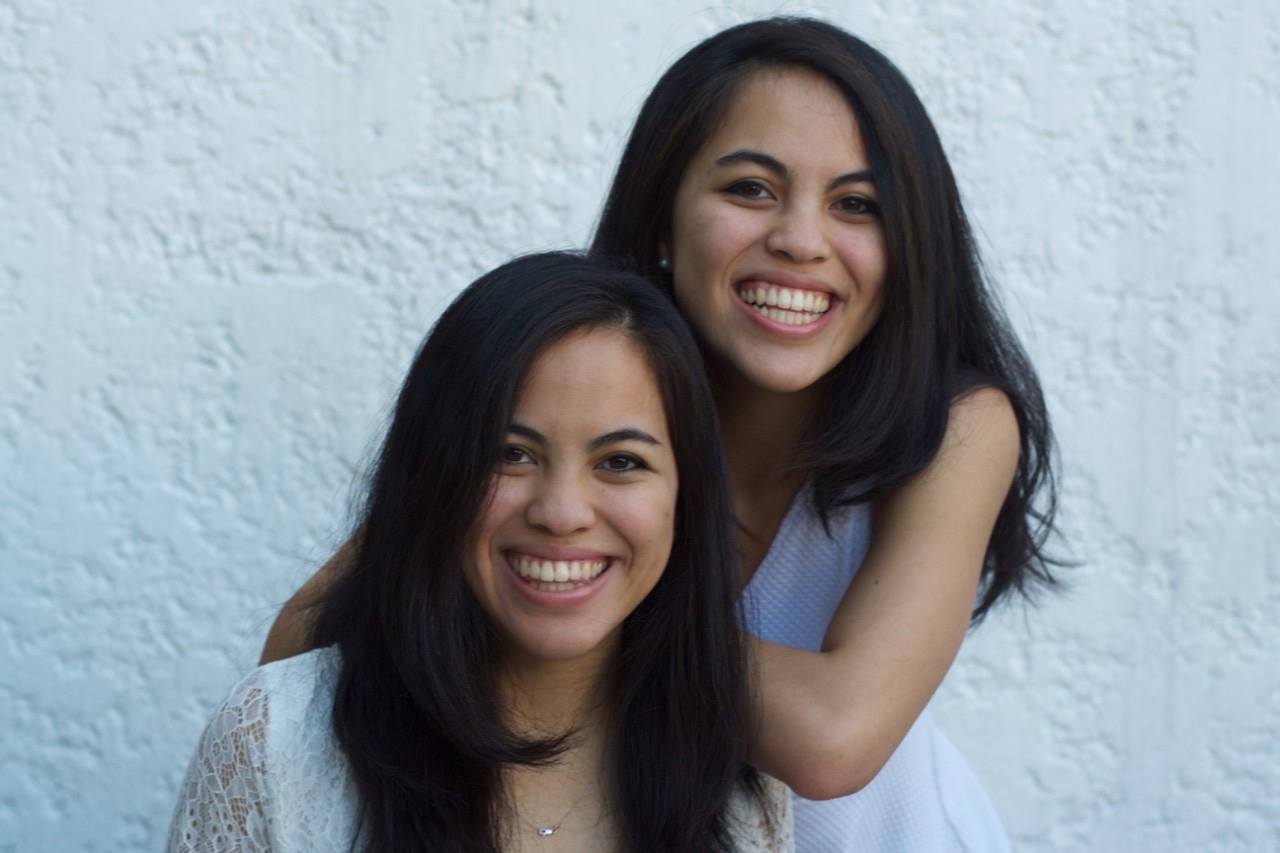 The college admissions process is stressful for everyone, but it can bring new layers of tension to familial relationships for twins, triplets, and other multiples.
The college admissions process is stressful for everyone, but it can bring new layers of tension to familial relationships for twins, triplets, and other multiples.
Some twins can't imagine being separated; they have gone through everything in life together and want to continue to do so. For these twins, conflict can arise when they try to agree on a single school. Other twins view college as an opportunity to finally be seen as individuals, rather than part of a pair. For them, conflict can arise if there is overlapping interest in certain schools. After all, having been raised in the same environment, and having similar DNA, can often result in twins being attracted to the same types of colleges.
My sister Louisa and I are the latter kind of twins.  Although we are very close, there was no question that we wanted to attend different colleges. Louisa and I participate in many of the same activities such as Speech & Debate and various singing groups. We like doing the same things, but we dislike being compared to or competing with each other. When one of us does better at a Speech tournament, or gets into a musical group that the other doesn't, it stings. We want to be treated the same as any other two students in our class. We try our best not to share our grades and test scores, but living in the same house we often can't help but overhear things that automatically cause us to compare ourselves. Socially, being a twin also brings added layers of stress. Louisa and I have many of the same friends, but naturally some of our friends are closer with her while others are closer with me. This can lead to awkward situations when certain friends want to plan activities with only one of us. Overall, socially, academically, and competitively we want to avoid the tension in college that being a twin can bring.
Although we are very close, there was no question that we wanted to attend different colleges. Louisa and I participate in many of the same activities such as Speech & Debate and various singing groups. We like doing the same things, but we dislike being compared to or competing with each other. When one of us does better at a Speech tournament, or gets into a musical group that the other doesn't, it stings. We want to be treated the same as any other two students in our class. We try our best not to share our grades and test scores, but living in the same house we often can't help but overhear things that automatically cause us to compare ourselves. Socially, being a twin also brings added layers of stress. Louisa and I have many of the same friends, but naturally some of our friends are closer with her while others are closer with me. This can lead to awkward situations when certain friends want to plan activities with only one of us. Overall, socially, academically, and competitively we want to avoid the tension in college that being a twin can bring.
We also wanted to be treated as individuals in the admissions process. Neither of us wanted to be rejected, or even accepted to a school because of our sister's accomplishments or lack thereof. Additionally, we have spent our entire lives together, and we know that even if we went to the same college, chances are we would not live together after college. So we decided that we wanted our first experience living apart to be in the nurturing environment of a small college, rather than being thrust into the "real world" where we would suddenly learn how to live without each other. However, we were both interested in small, suburban and rural liberal arts schools in the Northeast. Certain schools that we visited only appealed to one of us. For example, Louisa was interested in women's colleges, and I was not. However, we went on almost every college tour together, and thus visited more than 30 schools in total. Since we knew we did not want to go to the same place, it was difficult to admit when we both really liked one school. There was one school that we were both interested in possibly applying early decision to, up until September. Neither of us ended up deciding to apply E.D. there, because we were more taken with other schools when we went back to revisit a few of our favorites.
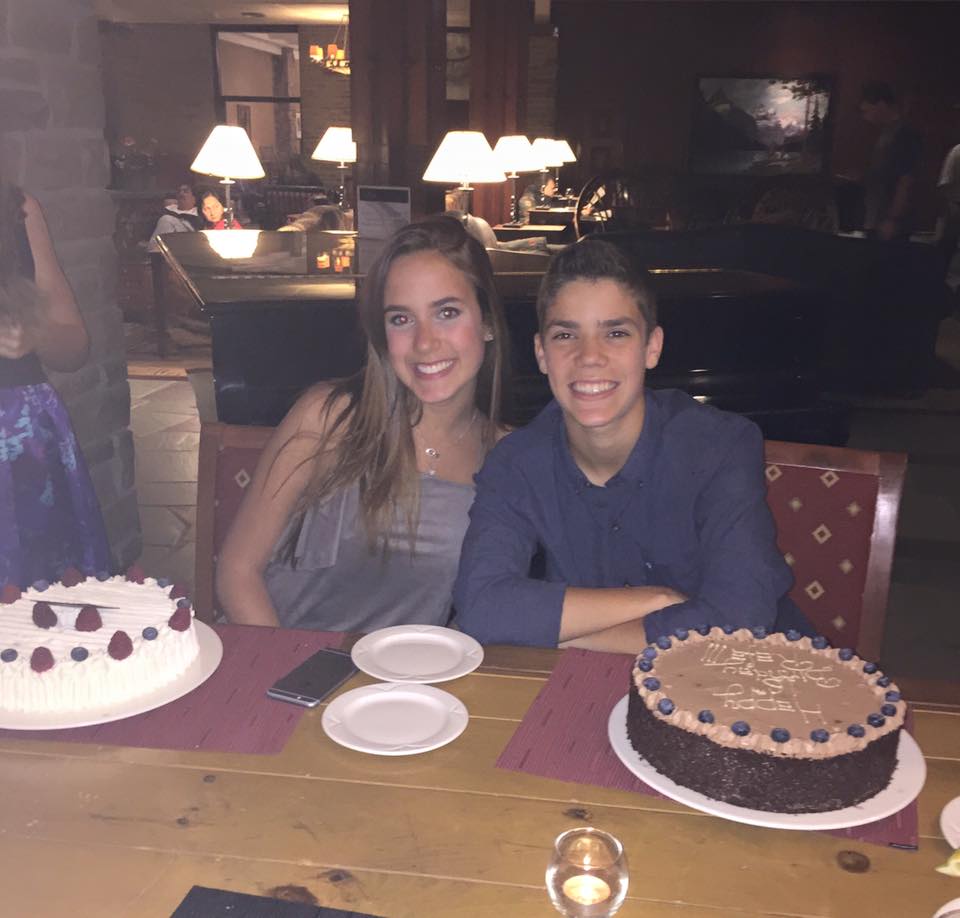 Fortunately, we both got into our top choice schools, where we applied Early Decision. I will be attending Hamilton College and Louisa will be attending Smith College. We know it will be difficult to adjust to living apart; after all we have never spent more than a few days in our life away from each other, but we know we will still talk every day. We are confident that we made the right decision for us. Louisa and I would advise twins who want to attend different colleges to be honest and open with each other about your opinions on various schools, it's better to say what you feel now and get into an argument, than to regret not speaking up about something and end up at a school where you didn't want to go, just because you were trying to protect your twin's feelings. I would also advise twins beginning the college admissions process to individually discuss your concerns with your high school deans. It can be quite refreshing to get an opinion from someone outside of your family.
Fortunately, we both got into our top choice schools, where we applied Early Decision. I will be attending Hamilton College and Louisa will be attending Smith College. We know it will be difficult to adjust to living apart; after all we have never spent more than a few days in our life away from each other, but we know we will still talk every day. We are confident that we made the right decision for us. Louisa and I would advise twins who want to attend different colleges to be honest and open with each other about your opinions on various schools, it's better to say what you feel now and get into an argument, than to regret not speaking up about something and end up at a school where you didn't want to go, just because you were trying to protect your twin's feelings. I would also advise twins beginning the college admissions process to individually discuss your concerns with your high school deans. It can be quite refreshing to get an opinion from someone outside of your family.
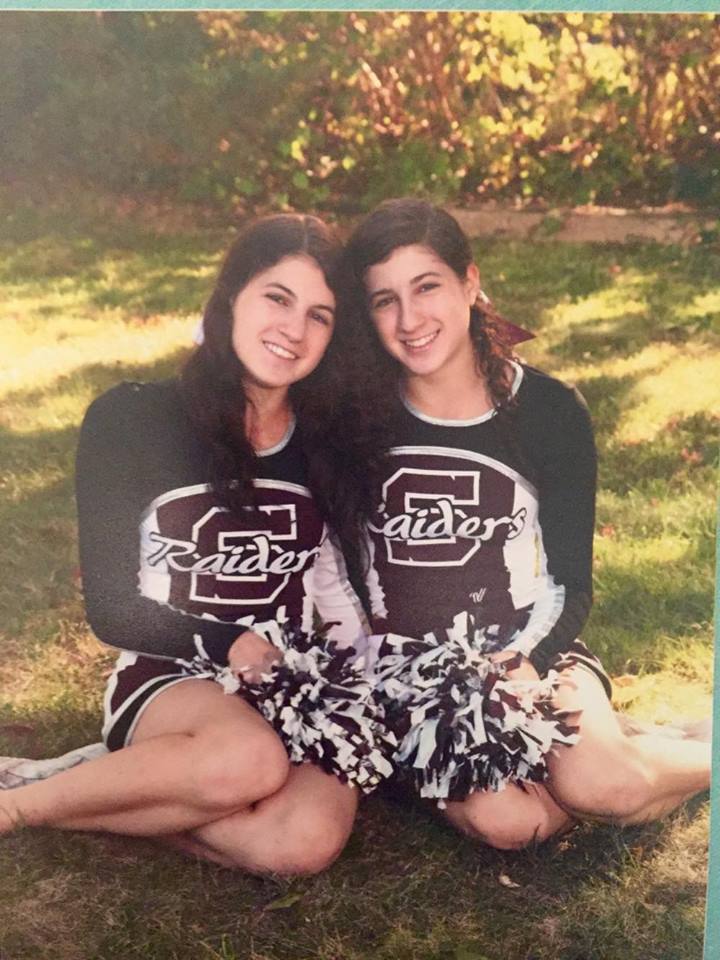 In terms of policies on accepting twins, surprisingly few colleges have them. Most schools treat twins on a case by case basis. For example, if a pair of twins have radically different grades, test scores, and participation in extracurricular activities, most schools will be inclined to treat them as individuals, and may have to reject one and accept the other. But if a pair of twins have similar records, colleges will typically be inclined to reject or accept them both. A 2008 New York Times Article titled "Is There a Better Half?" quotes William R. Fitzsimmons, the Dean of Admissions and Financial Aid at Harvard, "One of the great urban legends is that we have quotas for a particular school or state, such that with twins or triplets we might accept one but not the other. If truly the candidates are equally qualified, the decision would be the same for both." An article in Psychology Today notes that some schools, such as the University of Maryland, the University of Texas, Rice University and the Massachusetts Institute of Technology, consider twins individually. Duke University is one school that asks applicants if they are twins or triplets, and if so, whether their siblings are also applying. Some of this is for logistical reasons, such as preventing one twin's application from being placed in another twin's file, which can happen because of similar names and email addresses. Duke also wants to prevent a minor difference in applications that might cause one of two unrelated students to be rejected, from causing one of two twins to be rejected.
In terms of policies on accepting twins, surprisingly few colleges have them. Most schools treat twins on a case by case basis. For example, if a pair of twins have radically different grades, test scores, and participation in extracurricular activities, most schools will be inclined to treat them as individuals, and may have to reject one and accept the other. But if a pair of twins have similar records, colleges will typically be inclined to reject or accept them both. A 2008 New York Times Article titled "Is There a Better Half?" quotes William R. Fitzsimmons, the Dean of Admissions and Financial Aid at Harvard, "One of the great urban legends is that we have quotas for a particular school or state, such that with twins or triplets we might accept one but not the other. If truly the candidates are equally qualified, the decision would be the same for both." An article in Psychology Today notes that some schools, such as the University of Maryland, the University of Texas, Rice University and the Massachusetts Institute of Technology, consider twins individually. Duke University is one school that asks applicants if they are twins or triplets, and if so, whether their siblings are also applying. Some of this is for logistical reasons, such as preventing one twin's application from being placed in another twin's file, which can happen because of similar names and email addresses. Duke also wants to prevent a minor difference in applications that might cause one of two unrelated students to be rejected, from causing one of two twins to be rejected.
Financially, sending twins and other multiples to college  can put an immense stress on a family. Fortunately, the federal financial aid formula used by the Free Application for Federal Student Aid (FAFSA) favors families where multiple children are enrolled in college at the same time. And the CSS/Financial Aid Profile form also reduces the Expected Family Contribution (EFC) when there are two or more children enrolled in college simultaneously.
can put an immense stress on a family. Fortunately, the federal financial aid formula used by the Free Application for Federal Student Aid (FAFSA) favors families where multiple children are enrolled in college at the same time. And the CSS/Financial Aid Profile form also reduces the Expected Family Contribution (EFC) when there are two or more children enrolled in college simultaneously.
There is no one way that twins and triplets experience the college admissions process, something that is evident when hearing from several sets of twins who are current seniors or alumni of Scarsdale High School.
The initial question of "Should we go to the same college?" is not black and white. For some twins it is clear that they must either separate or stay together. Gabi Schott SHS '17 described the experience of her and her twin brother Raf: "I don't think going to the same school was ever an option, because as much as I loved having a twin throughout high school, I wanted to go my own way and have my own experiences. And I know he did too." Gabi will be attending Cornell University, and Raf will be attending Colgate University.
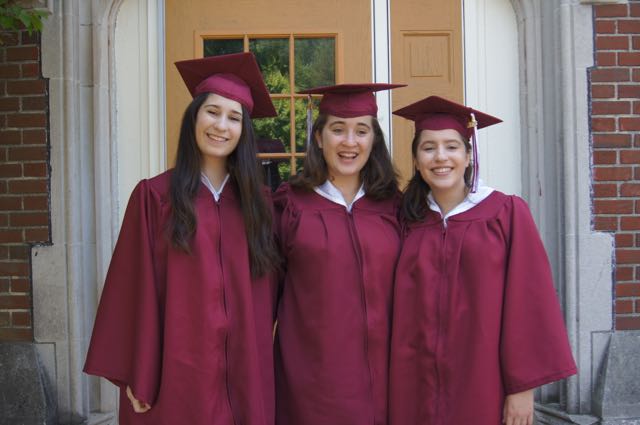 Current freshman in college and SHS '16 triplets Rachel, Abby, and Naomi Haber also knew they would separate because of their varying academic interests. Abby stated, "It would have been difficult if not impossible to find a school that accommodated all of our interests and passions. Therefore, we each chose schools that have offerings in our unique areas of interest." Abby is studying comparative literature and international relations at Brown University, Rachel goes to the Blair School of Music at Vanderbilt and is double majoring in viola performance and cognitive studies, and Naomi attends the Agriculture school at Cornell, studying environmental sciences on a pre-vet track.
Current freshman in college and SHS '16 triplets Rachel, Abby, and Naomi Haber also knew they would separate because of their varying academic interests. Abby stated, "It would have been difficult if not impossible to find a school that accommodated all of our interests and passions. Therefore, we each chose schools that have offerings in our unique areas of interest." Abby is studying comparative literature and international relations at Brown University, Rachel goes to the Blair School of Music at Vanderbilt and is double majoring in viola performance and cognitive studies, and Naomi attends the Agriculture school at Cornell, studying environmental sciences on a pre-vet track.
On the other side, Pammy and Cammy Sharlach SHS '17 knew that staying together was essential for them: "Even when we were little we knew we wanted to go to college together. We want to go together because only seeing each other on breaks was not enough for us", they said. Pammy and Cammy will start at Binghamton University in the fall.
Although the choice is clear to some twins, for others the question of going to the same school or not is not a major factor in deciding where to apply. Christina Siekierski SHS '17 explains about her and her sister Carolina, "Choosing our top choice was not a joint decision. After lots of visits and research, we just both happened to have the same top choice. I think it's because we grew up sharing so many things and the things we like and value just happen to be similar." Christina and Carolina will attend Colgate University in the fall.
Emily and Marc Chase SHS '17 agree, "We didn't purposely choose different schools, it just worked out that way." Emily will be attending Cornell University, and Marc has been accepted to several schools but does not yet know where he will be next year.
Some twins may experience conflict knowing that they want to separate or stay together, but struggling to either agree on a school, or select different schools. Carine and Colette Torres, SHS '14 and Duke University '18, experienced this. Carine said, "We actually intended on going to different schools, as we were definitely seeking to diverge; however, come May 1st, it ended up that we both independently decided on Duke." Colette added, "I, in fact, came very close to choosing another school that I had been deciding between with Duke, (for other reasons, too, but one of them being) to intentionally go to a different one." Colette and Carine are both studying computer science.
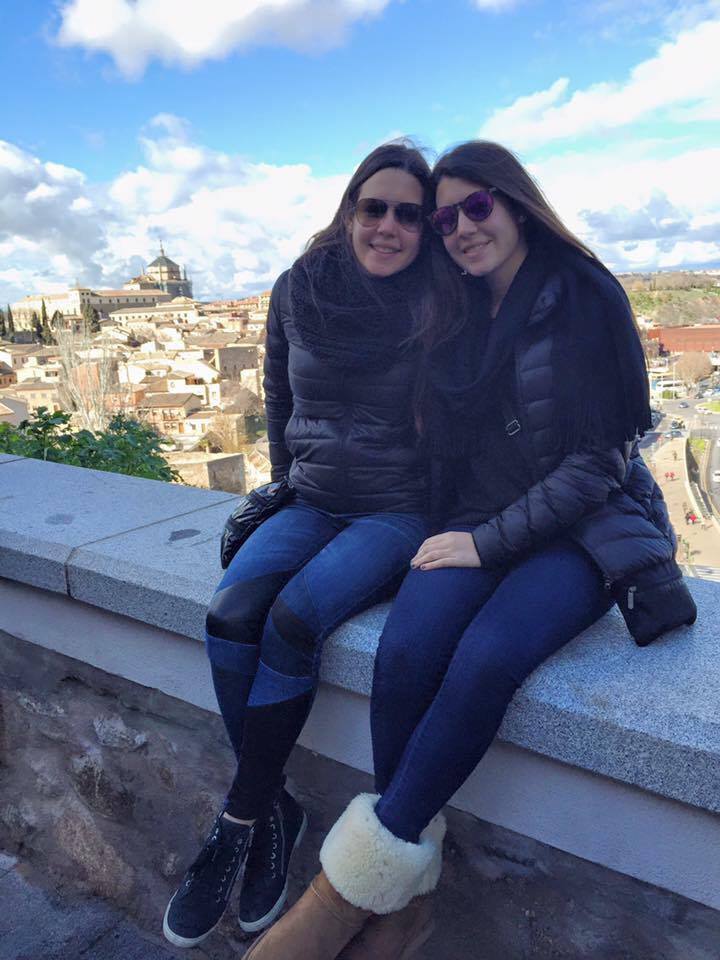 The Siekierski twins and the Sharlach twins will both be attending the same colleges, but have differing opinions on how they wanted their applications to be viewed. Christina Siekierski said, and Carolina agreed, "I think it is very important the college applications be looked at individually. Just because a person is born a twin, doesn't mean that should be defined by that. Each individual has different interests, accomplishments, and passions that should be evaluated individually." Pammy and Cammy Sharlach had the opposing viewpoint and said, "Although we are both individual people we prefer the both or none policy."
The Siekierski twins and the Sharlach twins will both be attending the same colleges, but have differing opinions on how they wanted their applications to be viewed. Christina Siekierski said, and Carolina agreed, "I think it is very important the college applications be looked at individually. Just because a person is born a twin, doesn't mean that should be defined by that. Each individual has different interests, accomplishments, and passions that should be evaluated individually." Pammy and Cammy Sharlach had the opposing viewpoint and said, "Although we are both individual people we prefer the both or none policy."
Each set of twins and triplets going through the college admissions process, experiences hardships unique to their situations. Gabi Schott said that one of the most challenging things about the process is the added pressure of parents saying, "Well Raf did this many essays, so how come you didn't." Carolina Siekierski mentioned, "It's annoying constantly being questioned, even by complete strangers. Do you wanna go to the same school? Are you gonna room together? What if one gets in and the other doesn't?"
One source of conflict that the Haber triplets encountered was the added stress of early decision admissions. Naomi Haber discussed the difficult experience of not being admitted to her early decision school, while her sisters were. Naomi said, "Throughout my childhood I had always struggled with being compared to my sisters: academically, athletically, socially, artistically, etc. When my sisters were both accepted early, I felt as though I had lost a race. This unhealthy and unproductive mindset was undeniably distorted. However, it also pushed me to become a better version of myself."
Naomi also recalled an unfortunate memory, "I was walking to homeroom one day when a girl in the grade below approached me. She congratulated me on my sisters' acceptances and said in a pitiful voice, 'Oh, but you were not accepted, right? Well, that must suck.' She then proceeded to say something along the lines of, 'Wow! They are very smart. Meanwhile, you have not gotten in anywhere.' I felt inferior as though I had somehow failed," continued Naomi. Her sister Rachel said of the situation, "I would have traded places with her in an instant."
Naomi reflected that her deferral (She was eventually accepted to her Early Decision school.) became a positive because, while she did not apply E.D. to Cornell, her deferral led her to pay more attention to Cornell, her eventual selection. She said, "By the time I was ultimately accepted into my early decision application school, I had realized that Cornell was a better fit for me. Because I was accepted there as an R.D. applicant, by contract I was no longer bound to the rules of E.D."
While clearly being a multiple brings added challenges to the admissions process for many, it doesn't have to for all twins. Marc and Emily Chase said they didn't experience many added difficulties: "Being twins really didn't affect the process for us. We acted as separate entities," said Marc and Emily.
There are also unique struggles and benefits of being a multiple once you begin college. Colette Torres discussed the worst parts of attending the same college as her twin sister: "It's the perpetual inescapable feeling that you can't be your own person. I think it's often hard for people to grasp that we want to have separate identities because there are a lot of assumptions made just from the fact that we go to the same school and have chosen the same major and lead very parallel lives in college." Carine added, "It's also frustrating that if we make the same decision, for example, we often choose the same electives for our major, it's not that we've made that decision together, but inevitably, there is often a 'smartest' or 'best' decision."
Abby Haber discussed the difficulty of being away from her sisters: "It's harder, and not as satisfying, to call or Skype them rather than walk ten feet to their bedroom. It is hard not to have Rachel and Naomi as consistently with me anymore because their company, advice, humor, and friendship have always (and continue to) mean so much to me." Rachel added, "When I first got to Vanderbilt, I had a really hard time adjusting to the fact I wasn't living with my sisters. I was used to them always being there when I got home, talking to them casually about what happened that day or just seeing them for a bit. It was really weird not having that initially, but I have made some amazing friends here that certainly haven't replaced them, but have helped me adjust. I know that all three of us will be close no matter what." The Haber triplets see each other approximately every three months.
The Torres twins reflected on some of the best parts of attending the same college. Colette Torres said, "In the beginning, it was super helpful because as a freshman, it often feels like no one can understand exactly what you're going through, but we were living through the same thing." Colette and Carine often wonder about what going to different schools would be like, and sometimes even wish they had more separate experiences, but are ultimately happy with their decision. Carine explained, "I definitely wish we had the experience of being in different schools; however, I don't regret going to Duke at all and if it means we had to go to the same school for me to get the experience I've had at Duke (and I think she feels the same way), I don't wish I had picked a different school."
The Haber triplets agree that independence is the best aspect of their lives at different colleges. Naomi said, "The best part about going to different schools is that it provides me with a greater sense of freedom which was difficult to achieve, as another 'Haber triplet,' throughout my childhood. I am seen as an individual, without comparison."
Many of the twins I spoke with had advice for other twins going through the college admissions process. Gabi Schott advises, "Help each other because you have the unique experience of going through this with someone else!" Carine Torres said, "Don't focus on being X's twin. Just focus on whatever you need to do for yourself exclusive of that fact." Pammy and Cammy Sharlach said, "Don't make it a competition. Be supportive of each other throughout the process." They added, "Another piece of advice is don't room with each other. It's good to branch out and meet different people and give yourselves a little space." The Torres twins agree that rooming together at the same college isn't a great idea. Emily and Marc Chase advise, "Support each other throughout the process but don't get so caught up in the other person's business and feelings."
Overall, the process is different for each set of twins, so if you are twins beginning the college search, do whatever you need to do to make the process the least stressful it can be. Moreover, if you are not a twin, understand when discussing the college admissions process with people who are twins, that just because people share DNA, they are individual people.






